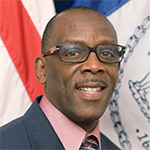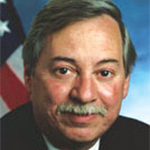Diane Savino
Chair, State Senate Labor Committee

Q: Were there any key bills affecting organized labor this past session?
DS:It was definitely more small-scale items. Because we were in the fourth year of the Cuomo administration, where we had done three balanced budgets, we were not looking at tremendous budget deficits. So we were not looking at slashing services. We weren’t making the hard decisions that we had to make in the past. As a result of that, there weren’t a lot of difficult fights for the labor movement. But the labor movement is not monolithic. The progressive wing of the labor movement was agitating around changing the structure of the minimum wage. That’s an issue that’s still going to be explored and discussed. But a lot of the people in organized labor said that this year they were going to get behind a cause, and one of the big causes this year was universal prekindergarten. So to that extent it was very successful. In the end we were able to negotiate increasing UPK across the state, making good on the commitment to New York City, and so that’s definitely a victory. It simply would not have happened if the discussion had simply been between two administrations. It was really the labor groups that got behind the push for UPK, because they saw it as not just helpful to their new mayor but also something that’s important to their own members, many of whom have children and want to see their kids put on the right path early in life. There really weren’t a lot of big labor bills that came through this year.
Q: What about next year?
DS: There are some bills that are going to continue to be contentious unless we have enough people to support them. The farmworkers’ bill of rights is one of them.
Q: Could minimum wage changes or the farmworkers’ bill of rights get done next year?
DS: It depends. I learned a long time ago that every year starts with its own dynamic, so I’m sure that those are issues that will continue to percolate. In January the state will raise the minimum wage again, which will be the second minimum wage increase in two years. There will always be people who will agitate for more, and rightfully so. What I do think is going to be the subject of a lot of discussion is the concept of local control over minimum wage. How much authority should the state grant a locality?
Daneek Miller
Chair, New York City Council Labor Committee

Q: What has it been like for you transitioning from a union leader to an elected official? As a new councilman, what are your top priorities in the labor area?
DM: I worked with colleagues in labor and government, and with the community, on service and budget issues; we created a coalition to achieve the first of its kind childcare program. The common denominator transitioning to government remains a commitment to coalition building and collaboration; I developed and enhanced those skills in the labor movement. My focus includes restoring employee protection provisions (EPP) in school bus contracts, improving the lot of private sector service workers, a fair minimum wage that grows automatically with CPI increases, family leave and insuring government agencies honor prevailing wage and project labor agreements.
Q: How do you see the role of unions in 21st-century New York City? Has the power of organized labor waned?
DM: Unions must continue to protect, organize and educate workers. At the same time labor must effectively explain why workers’ protections make sense and help grow the economy. Retail growth fuels the economy, and consumers consist primarily of workers and their families; increase their income and security and consumer spending grows. More cash for the 1 percent increases spending not one penny! Labor must also help carry the message on public investment. For example, the Amalgamated Transit Union, where I had served as president/business agent of its Local 1056—which represents the bus drivers and mechanics of the Metropolitan Transportation Authority’s New York City Transit Queens Bus Division—continues to advocate for national, state and local government investment in public transit infrastructure. The smart unions’ leadership seeks to develop relationships at the grassroots level. On Sept. 16, the ATUs will hold a transit town hall in Queens with the Queens Civic Congress, the coalition of Queens civic, block, tenant and co-op and condo associations. We also need to leverage our pensions and other funds to drive public and private infrastructure investment.
Q: What are the key New York City industries where increased labor organization is needed to enhance the lot of workers?
DM: We already see labor drives succeeding in private sector services—car wash, fast food, discount retail— industries where workers traditionally lack the protection and benefits afforded by collective bargaining.
Peter Abbate
Chair, Assembly Committee on Governmental Employees

Q: Was there any major legislation in 2014 that helped or hurt government employees?
PA: I’m happy to report that nothing passed that hurt labor. There are a number of bills that are still pending the governor’s signature that are incremental things that we are doing. There are a few pension things we are doing. We’re fixing a major 9/11 bill we did a few years back to make sure that people who were injured or are coming down with diseases after the terrorist attacks who might have been forgotten for benefits still have time to qualify. We’ve done a number of technical bills for the New York City pension board that they’ve requested, which should make our pension systems even stronger in the future. We’re still waiting on the outcome from the governor on a bill basically for New York City firefighters and officers to have additional training with all the new buildings going up and new building codes and smart buildings. We also did a DCAS bill: a threeyear extension for New York City, where the new administration is trying to do away with provisional employees. It’s happened so many times—instead of filling vacancies, they were constantly putting provisional employees in. Basically, it was a big technical year.
Q: Any other notable legislation?
PA: Another major bill came out of our committee that Assemblywoman Amy Paulin sponsored, which gives all veterans service credit in the system. Right now you had to be during certain periods of time, whether it was the Korean War or the Vietnam War or Iraq—but not times like now, even though fighting is going on and you might be sent somewhere. This gives everyone who is in the military credit. It passed both houses and is waiting for the governor.
Q: Do you have any top labor-oriented legislative priorities for next year?
PA: I’m trying to rest until the fall comes! I’m sure there will be a lot. There are some bills that might get vetoed that we might work on again, see what the governor’s veto might say and see if we can make those changes. We’ve been working with the city and state comptrollers, giving them more leeway with the investments they can make with the pension funds. I’m just happy the market is doing good, but you can’t solely rely on the market, so that’s something we’ll probably look at again next year.
Bob Linn
Commissioner, New York City Office of Labor Relations

Q: Over half of New York City employees are now working under new contract agreements between the city and their unions. Where do you stand with the bargaining units that are left?
BL: We have now completed over 60 percent of the workforce with some of the largest bargaining units in the city: the United Federation of Teachers, representing over 110,000 workers, District Council 37, representing 100,000, and two other unions as well, the 1199 SEIU hospital workers and the New York State Nurses Association. We have no other bargaining units at the 100,000-plus level. The others are in the several thousands to 10-thousands range of membership. Mayor Bill de Blasio originally said that we should finish the majority of the bargaining in 12 months. We have done 60 percent in six months. So it is our hope that in the next six months we will get the vast majority of workers settled as well.
Q: Some fiscal conservatives say the city cannot afford to pay for these new contracts. What’s your response?
BL: Well, it seems to me that by the standards of bond-rating agencies—what the bond sales have demonstrated—it’s clear that in their view, the city acted prudently in relation to these settlements. The most extraordinary problem the city faced was not knowing what the effects of these settlements would be, and I think everyone now applauds the fact that the city can go forward knowing exactly what it’s going to have to spend. I also think that by any standard, if you look at the collective bargaining at this point, the settlements the city reached were reasonable and responsible.
Q: Are there any misconceptions about the bargaining process you’d like to clear up?
BL: I think that we entered into a collaborative process and we solved extraordinarily difficult problems. Problems that eight months ago, most of the people looking at the city labor-relations scene thought would be impossible to settle. And it was really through a collaborative, respectful process, where we sat down together to bargain. We solved huge financial issues, and we brought together an approach on health-benefit cost containment where the parties now will work together over the next several years to figure out how to make our system more efficient and more effective. It’s better for the taxpayer, and it’s better for the employees. So I think the most important thing is that the whole nature of collective bargaining in the city is now one of collaborative problem-solving at major levels.
NEXT STORY: Back to School: A Q&A With Merryl Tisch

